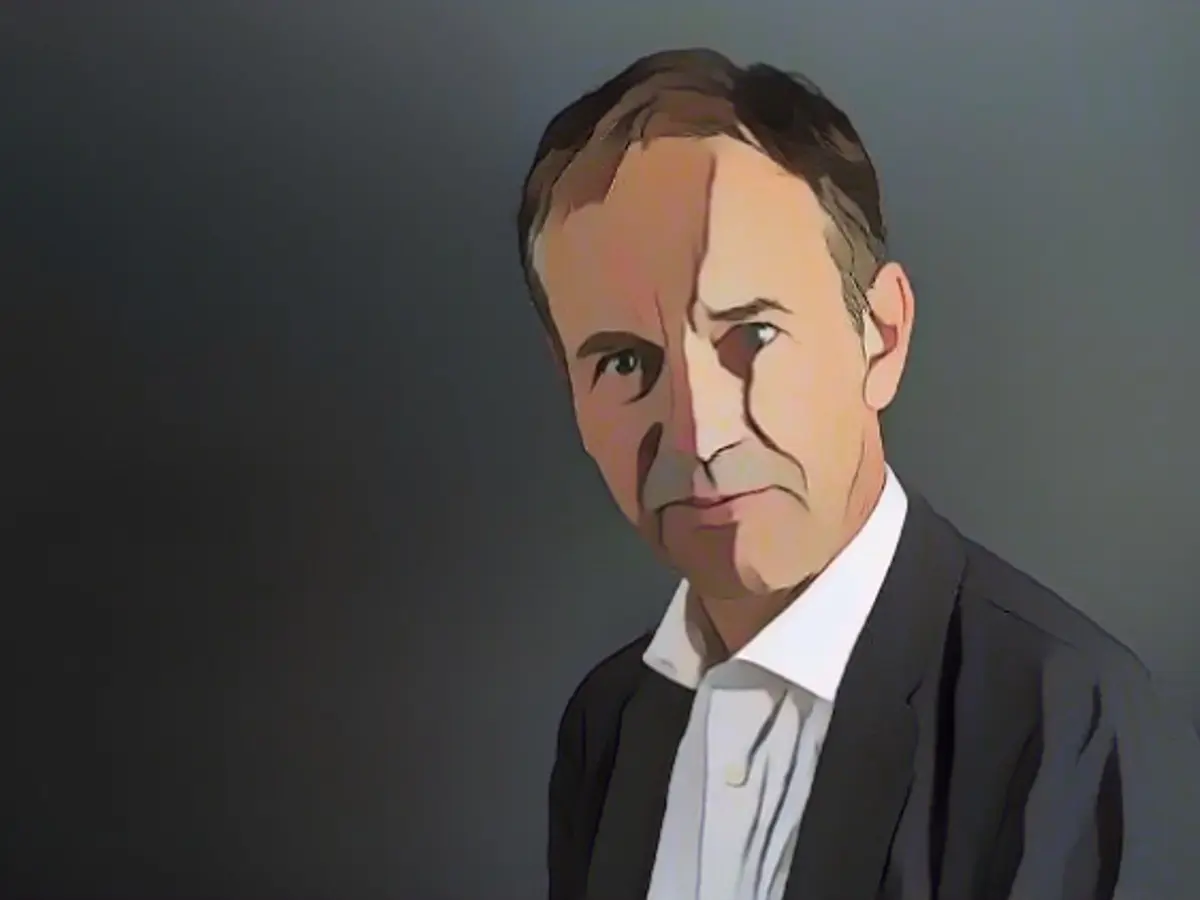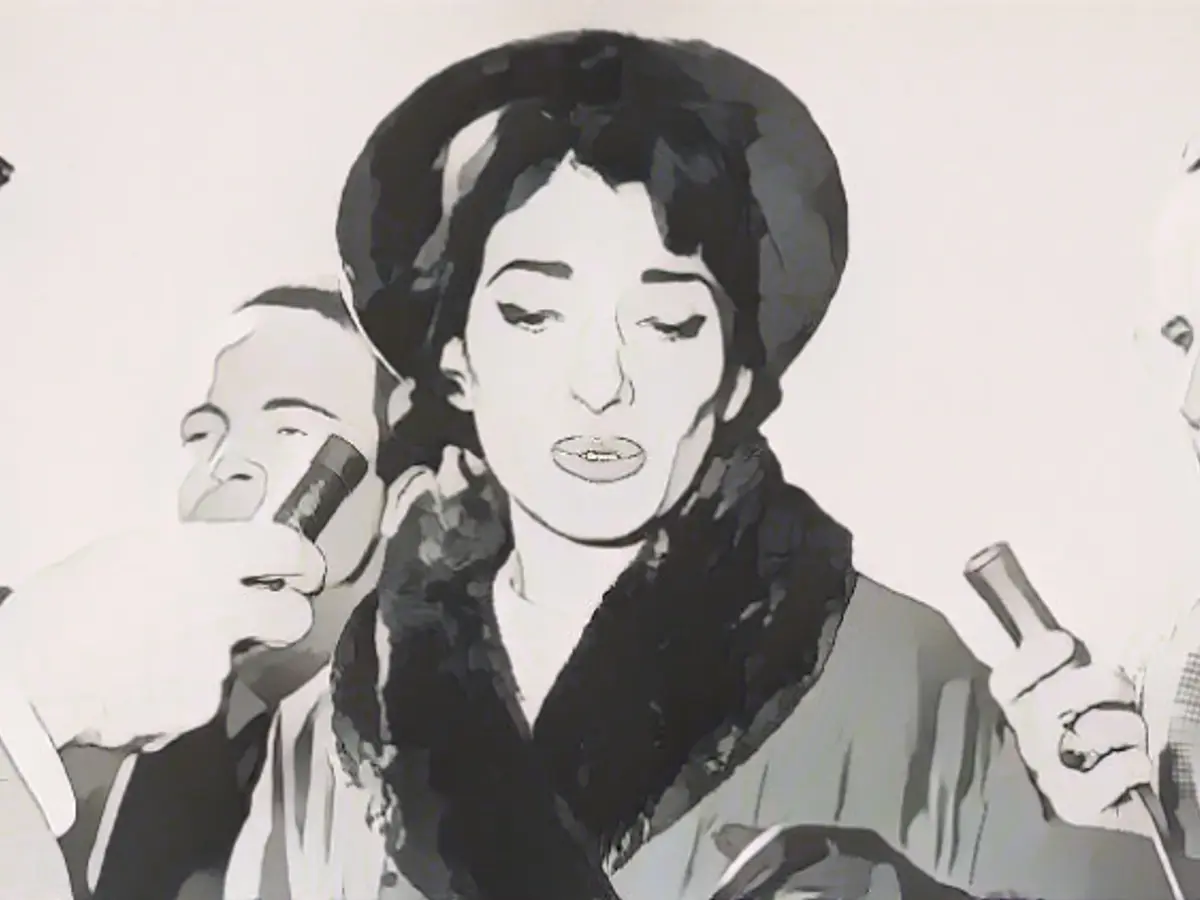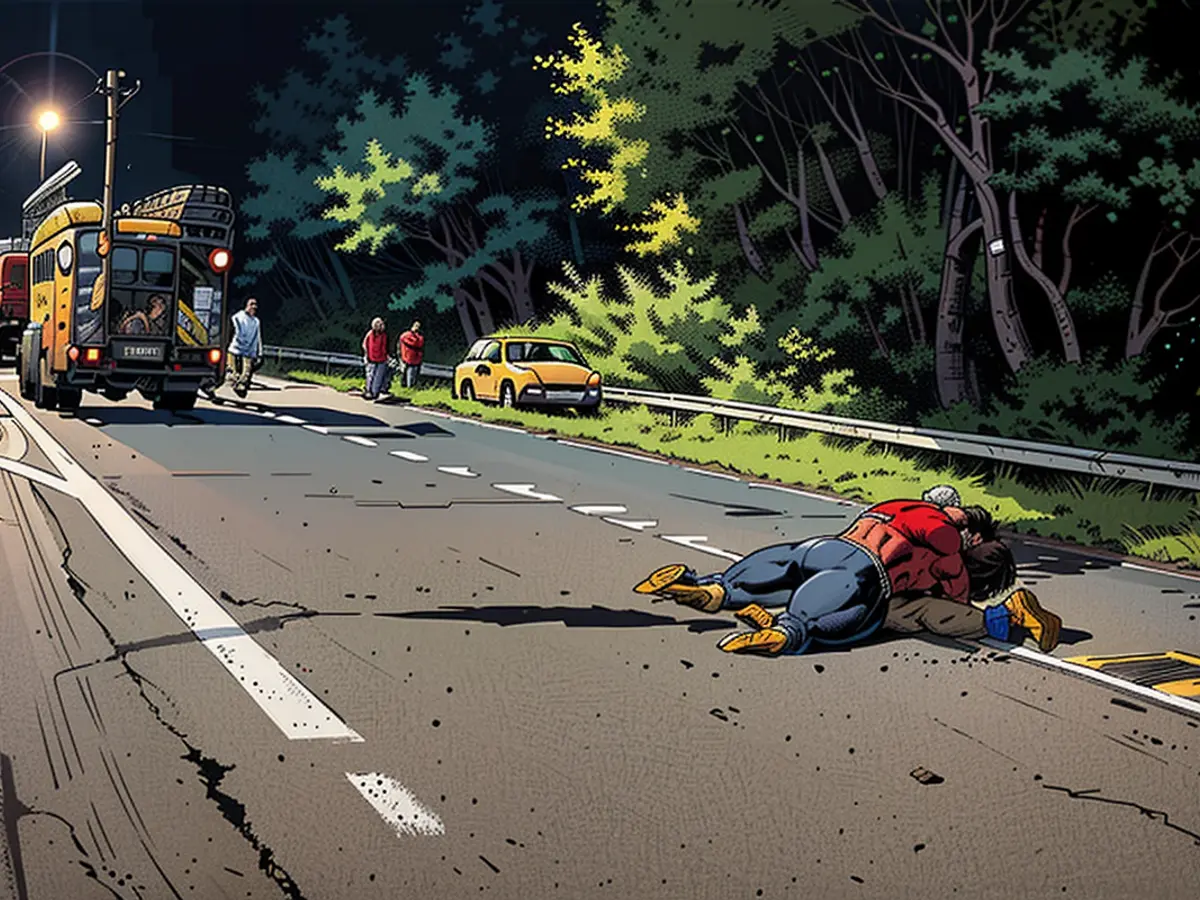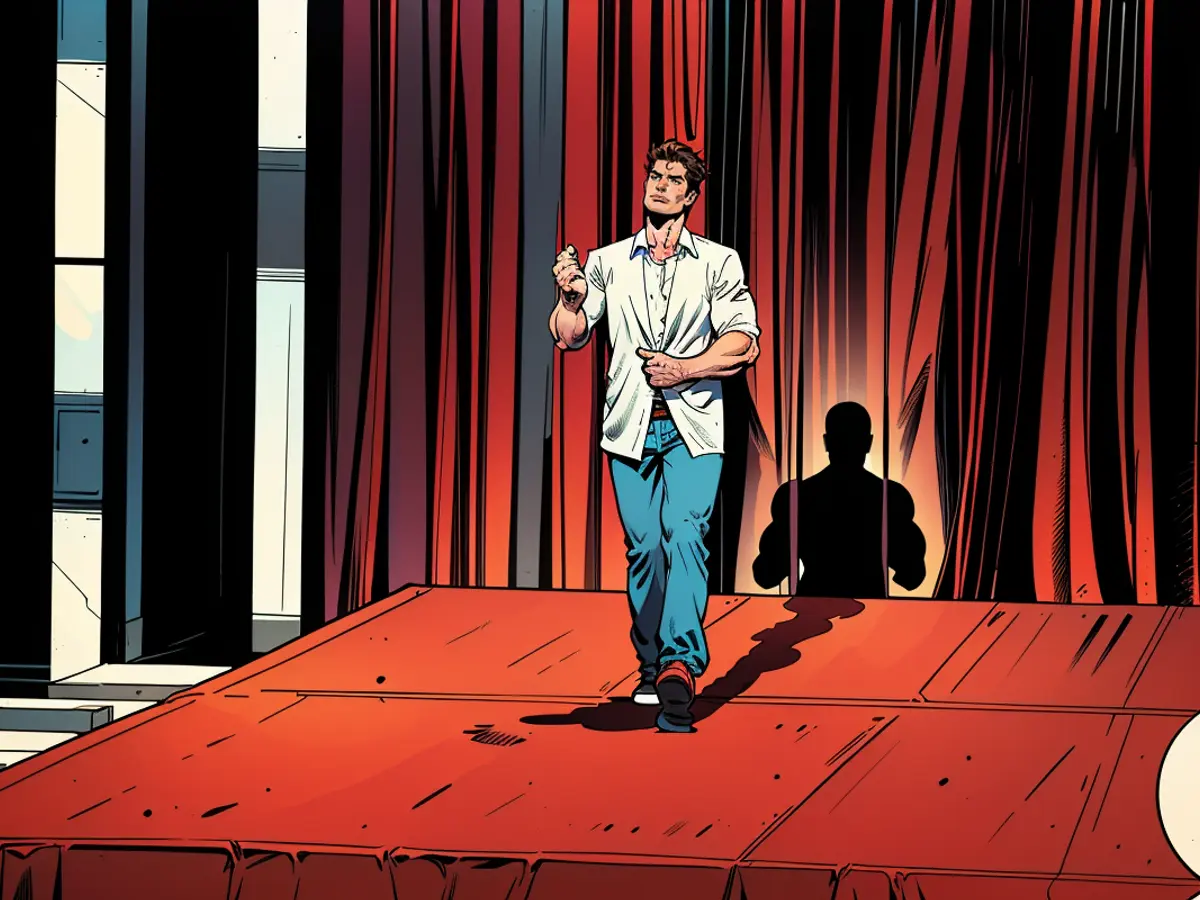Diva, tigress, victim? - Maria Callas was the "first female classical music superstar"
Maria Callas is probably the most famous opera singer in the world, and even 100 years after her death, numerous myths still surround her. In an interview with ntv.de, musicologist Arnold Jacobshagen explains what exactly is behind the scandals and why Maria Callas and her voice continue to fascinate and move people to this day.
ntv.de: When was the last time you heard a recording of Maria Callas?
Arnold Jacobshagen: This morning in the kitchen while making coffee! Just a few days before her birthday, that was of course the first thing I did. "Lucia di Lammermoor", first act.
So you're a big Callas fan?
Not really. But Maria Callas and her repertoire have always interested me as an opera researcher. And of course I know her recordings, many of which are unsurpassed.
Maria Callas has a voice that you can recognize from the very first notes, but it doesn't necessarily stand out for its beauty. What makes her voice so unique?
That it is so unmistakable and has so many shades. Compare it to an exceptional wine that really brings out all the aromas. And in different registers, in different intensities. That's what makes this voice, firstly, instantly recognizable and, secondly, so incredibly expressive. There are many beautiful voices, but there are only a few voices that are immediately recognizable, such as Freddie Mercury in pop music or Ella Fitzgerald in jazz.
Maria Callas is also known to many people who otherwise have nothing to do with opera. Why is that?
She was incredibly famous in her time. It is often said that she was the most famous woman in the world. She was the first modern female superstar in the classical music scene and at a level that has never been achieved since. A lot of things came together that were not just to do with her artistic achievements. For example, her enormous metamorphosis, the physical change from a bulky, not very attractive opera singer to a beautiful, slender style icon of the 1950s. Then there was her incredible charisma: on stage, she immediately overshadowed everyone else as a charismatic figure. But to reach an audience beyond classical music, of course, she also needed the scandals, the big public appearances and, in particular, the liaison with Aristotle Onassis, one of the richest men in the world at the time. And the fact that Onassis then dumped her to marry Jackie Kennedy, the widow of assassinated US President John F. Kennedy. That was a media constellation that has never been repeated.
The name Maria Callas is indeed associated with many scandals and stories from her private life. How did these myths come about?
Most of the legends have been amplified by the press to such an extent that the originally relatively harmless core of these so-called scandals has been exaggerated further and further. Moreover, the reality of the 1950s was very different. As a woman in particular, Maria Callas was more or less defenceless. Much of what was done to her back then would be considered extremely abusive today. But she never had a professional PR department, she was more or less on her own. And she personally responded to accusations, often very clumsily, which only made things worse. Today she would be surrounded by press officers and PR people who would shield her.
Of course, we can't talk about Maria Callas without mentioning the term "diva". She was also referred to as a "tigress". What is it about these attributions?
The diva is "the goddess" and Maria Callas was also called "La Divina", i.e. the divine one. This of course refers to her uniqueness, as does the term "prima donna assoluta", the first female singer not only of an opera company, but of the whole world. And of course Maria Callas cultivated this, she was very ambitious and worked incredibly hard even as a young singing student. Scandals are part of the diva's image and the press was just waiting to see what kind of attacks and signs of diva-like behavior she would present. But Maria Callas was not only this goddess-like singer, she was also a "tigress", i.e. an aggressive, at least impulsive, temperamental personality with a tendency to great outbursts. And this "tigress" that was inside her was necessary to set off the incredible explosions on stage that made her so unique artistically.
Maria Callas is often portrayed as a victim, a victim of the media, her mother, her husband Giovanni Battista Meneghini and Onassis.
This is also a myth that has many roots. She has almost always played tragic roles on stage in which she was a victim. And the tragic prima donna was then often transferred to her private life. These are shortcuts that we automatically draw in order to form a picture of a personality. But of course there is a lot of truth in all these stories.
Can you explain this with an example?
Maria Callas' childhood and youth were challenging, with her parents moving to New York, then separating and returning to Greece accompanied by her mother and sister, while her father remained in America. Her mother was certainly a difficult, unrelenting person and an incredible burden for Maria Callas. So much so that she broke off contact with her as early as 1950 and never met her in person again until the end of her life. However, she also owed her singing career to her mother. You have to look at her in all her ambivalence, but ultimately be grateful to her for setting Maria Callas on this path.

In the mid-1950s, in her early 30s, Maria Callas was at the peak of her career, after which things went rapidly downhill. Her relationship with Onassis is often held partly responsible for this. Is that true?
No, the Callas legend that her career collapsed as a result of a failed love affair is completely absurd. Her dermatomyositis, an insidious autoimmune disease that was still poorly researched at the time and led to gradual muscle loss, was probably the decisive factor in her vocal decline. All the private stories ultimately have nothing to do with her artistic achievements. Onassis only got to know her when her career had long since passed its peak. But of course that fitted in very well with this victim image of a woman giving up her career for a man and then being left. That says a lot about the way female stars were seen back then. Nobody would write anything like that about a man, but it was almost automatically done with a woman. That's a very traditional and outdated view that we should get rid of as quickly as possible. And Maria Callas offers so many opportunities to see her differently from these essentially misogynistic, almost sexist clichés.
In your book, you write that some of Maria Callas' behavior, which was perceived as diva-like, is often due to the fact that she had to assert herself in a patriarchal environment - and did so.
Exactly, that is very admirable. Especially if you look around the classical music scene, which was so male-dominated: all the conductors, directors, managers and producers were men. And then a woman came along and stood up to them. Many people didn't expect that, but the vast majority at least accepted it because of Maria Callas' professionalism and her artistic achievements. But not everyone in society did, so it's no wonder that such a diva image emerged. And ultimately, Maria Callas also benefited from this. The long-term appeal that she still has today and will continue to have in the future is largely based on these myths. The fact that she had to make some sacrifices for this is, of course, the other side of the coin.
What do Maria Callas and her voice still have to say to us today?
She is unique in terms of the expressiveness, virtuosity and sheer size of her voice. And that is why we will continue to hear her in the future. Certain recordings of Maria Callas will never be surpassed. But of course the personality itself has a lot to tell us. I met many young singers at music college for whom Maria Callas is still a great role model today. Some have even said that it was only when they met Maria Callas that they had the desire to become singers themselves. That moved me deeply.
Katja Sembritzki spoke with Arnold Jacobshagen
Lesen Sie auch:
Despite not being a fan herself, Professor Arnold Jacobshagen from the Cologne University of Music recognizes Maria Callas' unique voice in various recordings, which continues to captivate listeners today.
The impact of Maria Callas on the classical music scene extended beyond her artistic achievements, as she became the first "modern female superstar" in the classical music world, making her voice and name recognizable even to those outside of the opera community.
Source: www.ntv.de








